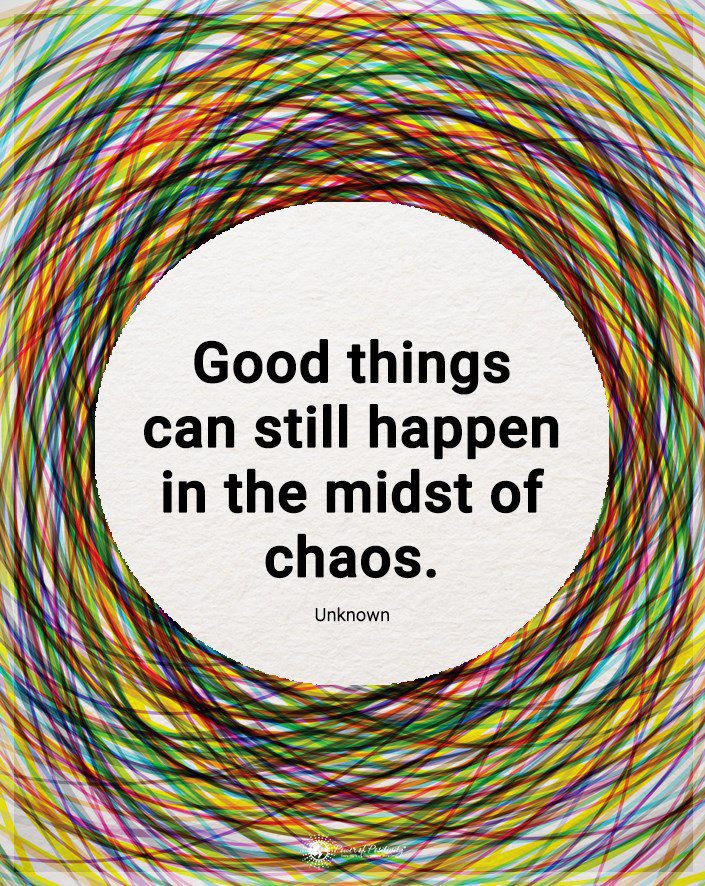Have you seen the 2008 movie The Dark Knight? If so, do you remember the brilliant performance by Heath Ledger as the Joker? If you answered yes, you already have a great frame of reference for this article. See, the Joker calls himself “an agent of chaos, ” and he most certainly is.
For novices, Joker is an uber-intelligent psychopath who wears makeup and an outfit that resembles a clown’s.
Here’s a short list of Joker’s shenanigans: robbing the mob, detonating a hospital, firing shotgun shells into a SWAT van, and torching around 100 million of cash (illegally obtained, of course.)
He is chaotic. Joker is an agent – a manufacturer – of chaos.
Ok, so that’s a bit extreme…
Yeah…most people, even the highly psychopathic and sociopathic, probably wouldn’t attempt any of the above-mentioned things. Many of them do, however, have the urge to do so. Reading through many confessions of both groups, such urges were quite evident.
Chaos is disorder. Someone who manufactures chaos gets a twisted thrill from disrupting the normal mechanisms of society.
Hence, a reason why a chaos manufacturer is often slapped with the Antisocial Personality Disorder (APD) label. We’ll delve a bit more into potential signs that someone may have APD or a similar condition like Narcissistic Personality Disorder (NPD). Psychopathy, it should be noted, has recently been reclassified as APD by the American Psychiatric Association (APA).
Some real stories about chaos
On Quora, the following question was asked:
“What is it like to be a psychopath?”
The responses in the thread seem. One of the replies, which serves as the primary source, was published in the well-esteemed Business Insider Science section.
In fairness, there are plenty of stories from individuals who were abused, mistreated, institutionalized and stigmatized for being “wired differently.” A minority of people diagnosed as psychopathic, narcissistic, or antisocial actively attend therapy and “blend in” with society.
As we’re all human beings, it’s important that such individuals are mentioned as to avoid the over-stigmatization that people within these groups already face.
The responses chosen are quite long, so only the pertinent sections are quoted word-for-word. We’ll use these quotations to contextualize the four signs of a ‘chaos manufacturer.’
The four behaviors that chaos manufacturers show before revealing themselves…
1. Manipulation
Many (most?) people with APD/NPD will habitually manipulate others to get what they want. Many individuals of these types are quite intelligent and cunning, which makes it quite easy for them to “get over” on unsuspecting people.
“My parents described my behavior as cold and distant. I had absolutely no sense of loyalty and would use people to get what I wanted,” said one participant.
“I have little trouble talking my way into and out of whatever I want, enabling me to do whatever I want,” said another.
2. Lack of empathy
Whereas most “normal” people possess some concern for others, this just does not apply to a chaos manufacturer. Even the most well-adjusted sociopaths and narcissists admit this:
“I have almost no ability to empathize with others, and even at the death of those close to me, I did not feel sorrow. Instead, I knew that I should be feeling sorry, and so I exhibited the emotions that I knew I should be feeling.”
Here is a response from a diagnosed psychopath:
“You are wired how you are wired. As much as we feign empathy and guilt, we feel none of it, and never will. It is without our ability to do so.”
3. Emotional detachment
It is not hyperbolic to say that sociopaths, narcissists, and psychopaths’ ability to register typical emotion is nearly nonexistent. More specifically, all three groups of individuals lack the cognitive apparatuses necessary to “feel” emotions aside from those that are self-derived.
“(Pretending) to feel things can be very taxing. I see it as more of a chore than a benefit. I choose to face it like an acting challenge. Every day I hone my skill a bit more, and my goal is to shed some genuine looking tears at a funeral someday.”
“I enjoy not experiencing emotions in the same way as others. Everything they seem to go through looks exhausting and stupid.”
4. Emotionally abusive
Deliberate manufacturing of chaos is a form of emotional abuse. All of the behaviors mentioned above, if intentionally exhibited for personal gain, falls under this category.
Some, though not all, narcissists, sociopaths, and psychopaths acquire escalating feelings of pleasure as they exploit increasing numbers of people. Mostly, these feelings serve to stoke these individuals’ ego, which is sizeable, if not insatiable. Here are a couple of testimonials to wrap things up:
“Being cold and heartless was always an advantage because I could skip from one friendship to the next, using all of them until they had no further use.”
“I can get almost everything I want. However, I have to be very careful not to step on too many of society’s laws. But like any psychopath, I can walk a certain line that lets me take what I want without putting me behind bars.”
On the extreme end of things, here is how one person describes their condition: “Chaos entertains you. Just imagine – being a spectator in a room full of people fighting with each other and knowing you were the source of it…”
Now, that sounds like the Joker.















 Community
Community

